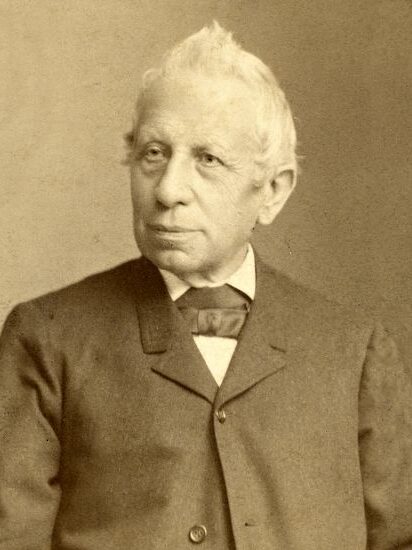Kreidel, Christian Wilhelm
Publishing bookseller, publisher
Born: March 26, 1817 in Wiesbaden
died: September 23, 1890 in Wiesbaden
Kreidel, who came from a modest background, founded a bookshop in Wiesbaden in 1843. From 1853, he also ran a fiction journal circle, whose magazines such as "Die Grenzboten" and "Die fliegenden Blätter" were delivered to and collected from subscribers.
Over the years, Kreidel developed a considerable scientific publishing activity, specializing in scientific authors from Wiesbaden. For example, he ensured the distribution of works by Carl Remigius Fresenius (chemistry), Hermann Pagenstecher (ophthalmology) and Carl Theodor Ludwig Neubauer (wine chemistry).
Another focus of Kreidel's program was railroad literature. For example, he published an "Almanach" for passengers on the Taunus Railway at an unusually early stage (1844), and from 1846 the internationally renowned "Organ für die Fortschritte des Eisenbahnwesens" ("Organ for the Progress of Railways") by railroad pioneer Gottlieb Heinrich Franz Edmund Heusinger von Waldegg.
But he did not neglect the historical disciplines either. In addition to the monumental "History of Nassau" (Theodor Schliephake/Karl Menzel, 1866-1889, in 8 volumes), the first systematic description of the Limes, "Der römische Grenzwall in Deutschland" by Carl August von Cohausen, is particularly noteworthy.
He was not only remembered by the people of Wiesbaden for his collection of steel engravings "Album von Wiesbaden", but also for his generous donations (Damenheim Kreidelstift, Zimmermann'sche Stiftung). He also left his home (now Kapellenstr. 17) to a charity in his will. The city of Wiesbaden has named a street after him in his memory.
Christian Wilhelm Kreidel was buried in Wiesbaden, but his grave is no longer preserved today.
Literature
- Rheinischer Kurier
Rheinischer Kurier issue of 24.9.1890
- Struck, Wolf-Heino
Wiesbaden in the Biedermeier period (1818-1866). History of the City of Wiesbaden 5, Wiesbaden 1981 (p. 226 ff.).
- Baumgart-Buttersack, Gretel
Who was Christian Wilhelm Kreidel? In: Wiesbadener Leben 39, Issue 10, Wiesbaden 1990 (pp. 32-33).
